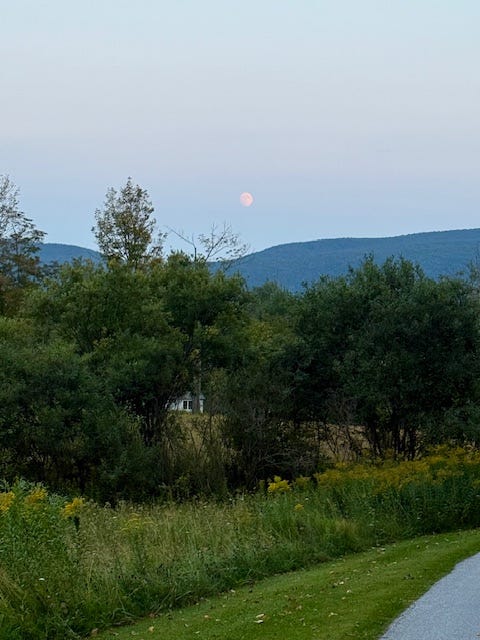The Marvelous Crow
having waken, stay awake
I have a bad habit as a birder walking in the field, or driving. Staring up at silhouette balancing on a wire or ripping across the sky, the easy answer slips out of my mouth: just a crow. The phrase is a tiny door that swings shut on wonder. It’s a way of saying I already know what I’m looking at—nothing to see here, move along.
Of course, it isn’t true. A crow is a brilliant being. Crows know our faces and remember them for years. They warn one another, teach their young, cache food in preparation for winter. They mob hawks, carry news through the neighborhood, and sometimes—if the reports are to be believed—leave small objects for people they trust: a bead, a hinge, a shining piece of foil. Family bands raise the year’s nestlings together. The word just can’t hold that architecture of care.
(Look at this magnificent river otter I stumbled upon on my new favorite walk:)
What I mean, when I say just a crow, is that I’m tired or hurried. That I’ve made a bargain with the day: efficiency over attention. I want to be clear that I know what I’m looking at, that it wasn’t an exotic bird, that it wasn’t “special.” And then I have that intuitive feeling of getting something wrong.
And it can find you in strange moments, like today in the Starbucks Drive Thru - a Carolina Wren popping off from a beleaguered hedge as I rolled down my window for a grande vanilla oat latte.
I used to work with a team of Australians from Brisbane - and when they came over to the US for a visit they were delighted by squirrels. There are no native squirrels in Australia. Seen through my co-workers’ eyes, every squirrel was astounding. A spritely, resourceful, tree-climbing rodent with a great tail.
*
This morning I read a note from the Merwin Conservancy about the mail that still arrives at an old post office box in Maui—envelopes addressed to “William Merwin, Loyal Supporter,” asking for help for refugees, endangered species, mistreated animals. Even now, the envelopes keep coming. There’s something moving about that to me: a poet who lived with enough steadiness and moral clarity that the world continues to address him in the present tense. (or ask for his money).
(*side note: I love the ED, Sonnet’s, letters to the Merwin community. Sign up. His Hawaiian homestead and palm conservancy is one of the most remarkable places I’ve been.)
In a PBS interview, when asked what he hoped his poems would do, Merwin said: “I would like it to make them feel that it had helped them come awake to something that they needed. And having wakened, that they stayed awake.” I’m savoring that line this morning.
Having waken, stay awake.
So here - not just a house sparrow, but a marvelous house sparrow:
Here’s a practice I’m trying: replace just with marvelous. Marvelous crow on the school chimney, calling the morning into order. Marvelous crow strafing a red-tailed hawk twice its size, a daredevil protecting its community. Marvelous crow in late light, wings briefly blue. Marvelous sparrow, balancing on a dying stem to feed. The word doesn’t exaggerate; it corrects my posture. It reminds me that attention is not a mood but a method—an ethic, even—of showing up for the life around us.
(helping a cold red eft find a better location than the road)
And if crows can recognize individual human faces, perhaps I can try to be a face worth recognizing: consistent, nonthreatening, curious. The kind of presence that returns the next day with a softer step. It’s not a bad way to approach the rest of one’s life, either—to be someone the more-than-human world could learn to trust.
As seen in the Merwin Conservancy’s newsletter this week:
SKY IN SEPTEMBER
In spite of the months of knowing
and the years
autumn comes with astonishment
light held up in a glass
the terrible news in a haze
caught breath in the warm leaves
in spite of the gathering dust and the vast moon
the day comes with a color
its words cannot touch
so it is when I see you
after the years when the ailanthus leaves
drifted unnoticed
down the gray wall
they have disappeared and nothing is missing
after their rocking and clinging
they have vanished with the thieves and shufflers
and the words of the dealers
taking nothing
they have fallen like scales from the eyes
and at last we are here together
light of autumn
clear morning in the only time
—W. S. Merwin from Rain in the Trees (Knopf, 1987)
*
PS:
I head to Luther College soon to deliver the Farwell Distinguished Lecture, which I’m calling: “Writing the Sacred: Awe, Ecology, and the Imagination.” I’ll post the video and transcript later for paid subscribers.
I make an appearance on this two-part podcast from Vermont Humanities about the book The Light Pirate, on energy, Vermont, and community.
I’ll be sharing the Dread Audit for Creatives worksheet and guide for my paid subscribers later this month. It means a lot to me when you subscribe.
I’ve been doing some Creativity Consults lately and I like coming up with a formula that works for everyone - accountability/monthly meetings; project planning; creative practice pep talks; creative pivots. Sign up!
Until soon,
xo
MMB




Now that my rare neurological disorder has taken away my ability to walk and drive, I’ve become a sitter/watcher of that which nature brings to me in lakeside Vermont. I watch small birds gorge on tent caterpillars while marvelous crows hang about in small felonies rather than large murders. Today, as the thunderstorms slide by to the west of me, a hungry juvenile bald eagle perches on a spindly pine not thirty feet away. I silently encourage the monochrome raptor to harvest the trout and bass I no longer catch and release. A cherry tree lives comfortably with its feet in the watch, as comfortable as my thriving stand of silver birches. In my active days, I’d have culled that pine and removed that tent. I’ve become an observer of a place doing just fine without my help and it feels quietly marvelous.
i love all of this, marvelous M.M.B. People should also stop naming creatures 'lesser', 'minor', or 'common' and look more closely instead.